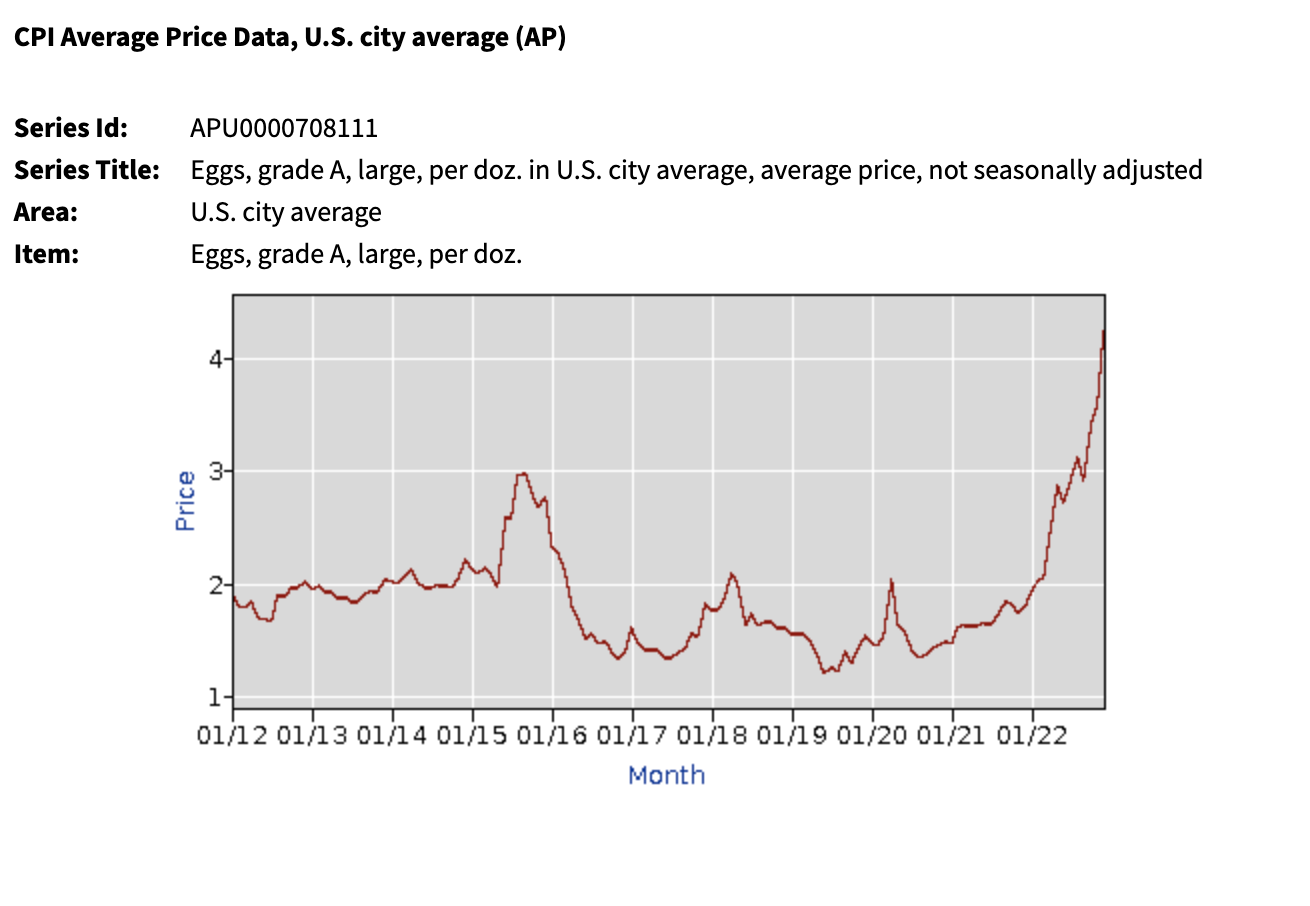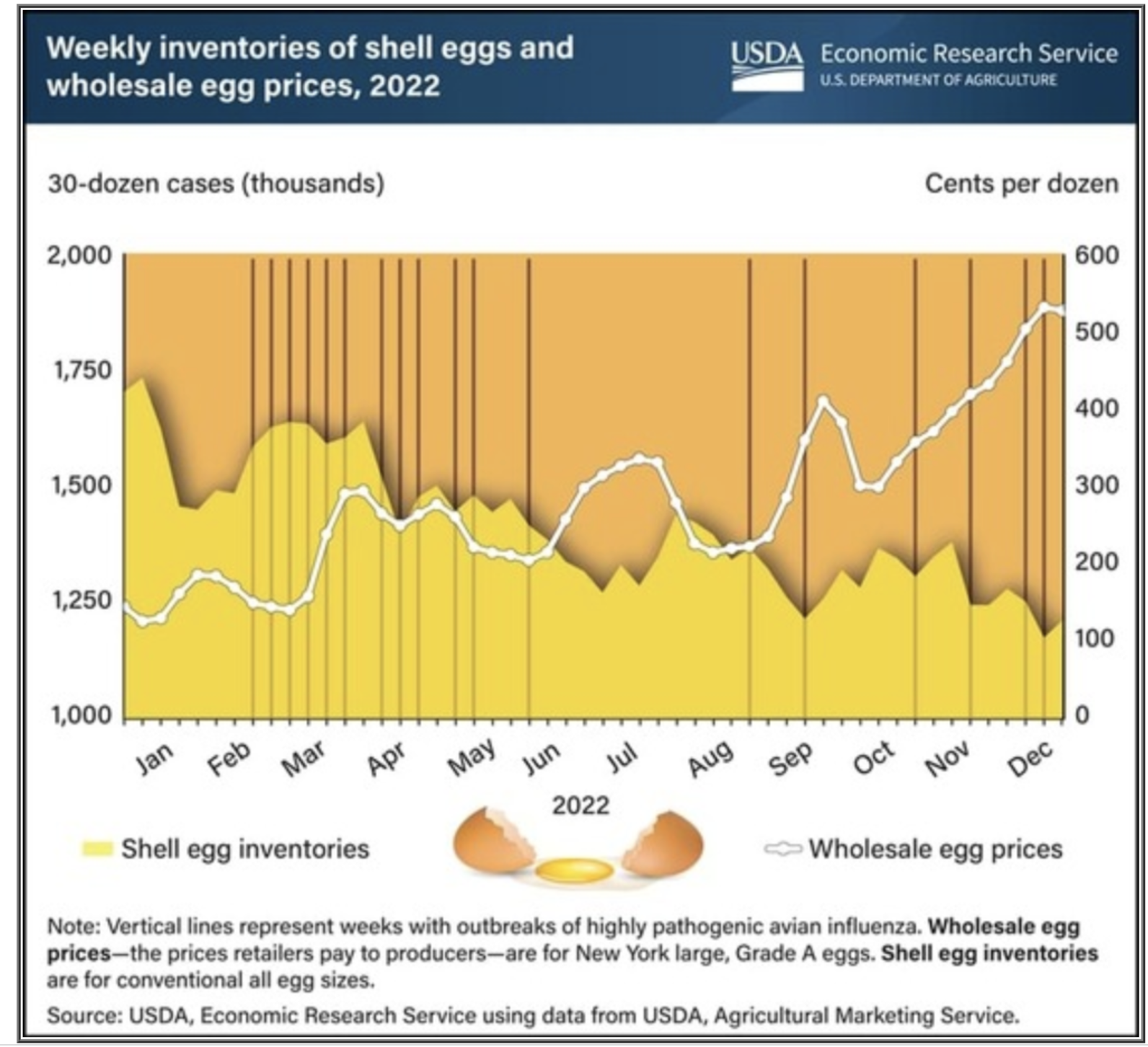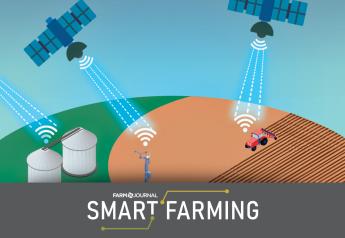What's Really Driving Egg Prices 138% Higher in a Year?

Egg prices are up 138% year-over-year, and one group is asking the Federal Trade Commission (FTC) to explore why the nation's largest egg company is seeing record-high profits while shoppers pay record-high egg prices. However, agricultural economists remain adamant supply and demand are the main drivers of the price increase shoppers are experiencing today.
According to the Bureau of Labor Statistics, a dozen eggs cost $1.78 in December 2021. A year later, the price jumped to $4.25 per dozen, which is a 138% price increase.

What's Really Causing the Sharp Spike in Egg Prices?
What's really behind the 138% increase in egg prices year-over-year. Agricultural economists agree it all boils down to supply and demand.
Gregory Archer, a Texas A&M AgriLife Extension specialist and associate professor in A&M’s Department of Poultry Science, says the biggest factor is the reduction in supply due to avian influenza. He says more than 50 million birds have been lost this year due to the disease, many of those being commercial laying flocks.
The other reason is poultry producers are faced with high costs due to inflation. In addition to high feed costs, producers are paying more for fuel, including gas, diesel and natural gas, to transport eggs and run farms.
Jayson Lusk, head of the Department of Agricultural Economics at Purdue University, says if you want to know why egg prices are so high, just look at supply and demand.
“We've had a significant reduction in supply from depopulation this spring and again in the fall and winter,” Lusk says. “Couple that with inelastic demand for eggs, and you get the price spikes we're seeing.”
Lusk says the holiday baking season meant eggs were in high demand. That, along with less supply, sent egg prices higher.
Farm Action Wants Answers
Now, Farm Action, which claims to "lead the fight against monopolistic corporate control over our food and farming system," is asking the FTC to explore the egg industry. The group sent a letter to the nation's antitrust regulator asking the FTC to examine why the nation's top egg company is seeing record-high profits.
According to Reuters, Cal-Maine Foods (CALM.O), which controls 20% of the retail egg market, reported quarterly sales up 110% and gross profits up more than 600% compared with the same quarter in the prior fiscal year.
Fact Action, which says it wants to show the truth about industrial agriculture, says the group "exposes the devious ways monopoly corporations maintain control over our food system." Farm Action says industrial agriculture is an economically flawed system that "only survives by spending billions of dollars on myth-based marketing campaigns and passing the true costs of production on to taxpayers, farmers, workers and everyone who eats."
The Numbers According to USDA
USDA's data also shows supply and demand is the culprit for the run-up in egg prices, largely due to just how much of an impact avian flu had on the national's flock.
USDA says egg inventories were 29% lower the final week of December 2022 versus the beginning of 2022. The agency says 43 million egg-laying hens were impacted by the disease since the start of the outbreak in February 2022. Those losses were either from birds being directly hit with the disease, or producers forced to depopulate to get the disease under control.
"Losses were spread across two waves: from February to June (30.7 million hens) and from September to December (12.6 million hens)," USDA reports. "On constrained supplies, wholesale egg prices [the prices retailers pay to producers] were elevated throughout the year. The HPAI recurrences in the fall further constrained egg inventories that had not recovered from the spring wave."

USDA points out the latest wave occurred as holiday season demand from more baking picked up.
"The average shell-egg price was 267% higher during the week leading up to Christmas than at the beginning of the year and 210% higher than the same time a year earlier," USDA says.
When Will Egg Prices Come Down?
USDA does expect wholesale egg prices to decline this year. In fact, during the last week of 2022, as flocks started to recover, wholesale egg prices started to fall.
Poultry producers will need to replace the lost layers, Archer says, which will take some time. It takes a layer 20+ weeks to start laying eggs from the day they are hatched.
The price of eggs will also depend on inflation's impact on farms, as well as the demand side of the equation. If more flocks are hit, inflation increases and demand continues to rise, then the higher prices at the store could last longer, Archer says.
Related Stories:
Why Have Egg Prices Spiked 60% Since Last Year?







